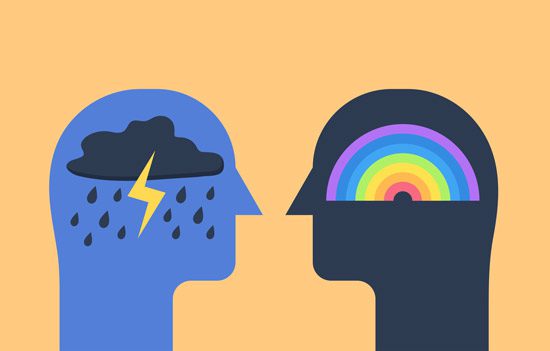Struggling with mental illness can feel very lonely and isolating. It sometimes feels like no one else shares the experience. This is one reason why, since 1949, May has been observed as Mental Health Month. It is important for those who struggle with their mental health to know that they are not alone.
Events Have Gone Virtual
In many years past, in-person events raise awareness and build community around mental health recovery. Due to the pandemic, Mental Health Month events have largely been virtual.
You’re Not Alone
The National Alliance on Mental Illness (NAMI) is one national organization trying to bring attention to mental illness by promoting mental health awareness and education in May. For May 2021, NAMI has chosen as a slogan, “You are not alone,” as one of the biggest struggles for people with mental health disorders is feeling supported and understood. NAMI is also encouraging the use of the hashtag #NotAlone in May, to promote events that build community around people who are fighting mental illness.
Taking Action
Using the theme “Tools 2 Thrive” for a second year, Mental Health America is another national organization at the forefront of Mental Health Month activities. MHA puts together a tool kit each year to help people learn more and do more about promoting mental health. The tool kit includes steps that individuals can take to raise awareness about mental health, which include:
1) Sharing information in your personal circles of influence, such as:
- Your local gym/yoga studio
- Health food stores
- Your job
- Your house of worship
- Local schools
2) Utilizing social media platforms to help destigmatize mental illness
3) Contacting your local, state, and federal elected officials to ask them to make mental health a priority
4) Reaching out to local TV station or newspaper and sharing your mental health story
The MHA Tool Kit also offers a number of activities to learn about and support your own mental health. These include tips a person can use when they are experiencing a mental illness episode, a writing assignment to promote radical self acceptance, and self-care tips.
Dispelling Myths about Mental Illness
One of the reasons there is so much stigma around mental health is the prevalence of myths and fear. The U.S. Department of Health and Human Services operates mentalhealth.gov, which offers some information about several common myths that have circulated around mental illness for years. These include:
- Children don’t experience mental illness – In reality, half of all people experiencing mental illnesses showed signs of it before they turned 14.
- People with mental illness are dangerous – It is actually far more likely that a person with a mental illness will be the victim of a violent crime, not the perpetrator.
- People with mental illnesses cannot hold down a job – Many people who struggle with their mental health are employed and are good employees. In fact, many famous people have fought mental illness while still achieving great things: Abraham Lincoln, Virginia Woolf, Robin Williams, Princess Diana, and Charles Dickens.
- Mental health issues are caused by character flaws – Mental illness can be due to brain chemicals, genetic traits, trauma, or other life circumstances, but are not the sign of a person being weak and immoral.
- Mental illness cannot be healed – Recovery is possible. Through therapy, medication management, and strong support systems, many people are able to have happy, stable lives after being diagnosed with mental illnesses.
- There is nothing I can do to help a person with mental illness – Friends and family are very important in the mental health recovery process. You can help your loved one by:
- Reaching out and letting them know that you care and are ready to support them in their recovery journey.
- Helping them locate mental health services – If you don’t know where to start, their primary care doctor should be able to get the referral process started, or you can reach out to NAMI.
- Educating yourself about mental health
- Treating the person with respect and kindness
- Seeing them as more than their diagnosis
We’re Ready to Help
If you or someone you love is struggling, the best time to get help for your mental health is now. Highland Hospital has caring, compassionate staff who are ready to listen and help you find the tools for recovery.










